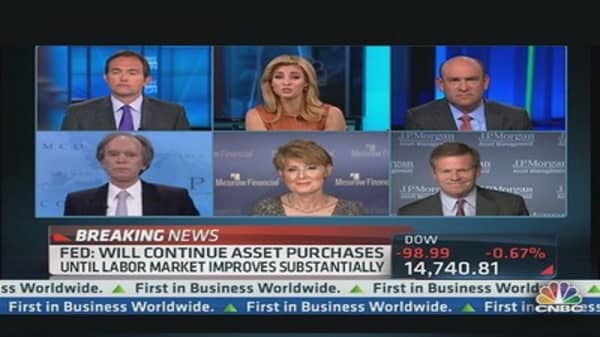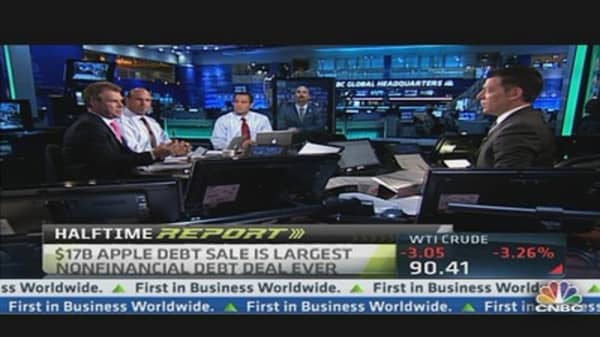The Federal Reserve kept interest rates unchanged, as expected, and reiterated it will continue asset purchases until the labor market improves substantially.
One minor change in the Fed's recent statement after the meeting—that the central bank would increase or decrease the pace of its asset purchases depending on conditions.
"The Committee is prepared to increase or reduce the pace of its purchases to maintain appropriate policy accommodation as the outlook for the labor market or inflation changes," according to the statement.
"The stock market has benefited from the monetary policy as the Fed's actions have encouraged risk taking," said Tanweer Akram, senior economist at ING U.S. Investment Management. "But at the end of the day, you have to have real income growth for nominal GDP growth."
On the economic front, growth in manufacturing activity slowed in April, according to the Institute of Supply Management. And construction spending declined in March to a seven-month low, according to the Commerce Department.
Adding to woes, the U.S. private sector added an unimpressive 119,000 jobs in April, according to the ADP National Employment Report, well below economists' expectations for an increase of 150,000 jobs. It was the smallest gain since last September. The ADP report came ahead of the government's widely-watched monthly employment report, which is expected to show 150,000 new non-farm jobs were added in April, according to an estimate from Reuters.
(Read More: 'Real' Jobless Rate Still Above 10% in Most States)
Also on the economic front, U.S. manufacturing growth slipped in April to the lowest final reading in six months, according to financial data from Markit.
"The U.S. economy is expanding, but the pace is quite tepid," said Akram. "There were talks of reining in the QE program, but we don't think that's going to be the case, given the state of the data. Our view is that the Fed will continue its asset purchases at the same scale at least until the end of this year, if not beyond, as inflation is low and unemployment remains high."
"There is some good news—housing is improving," noted Akram. "But unless the labor market strengthens and disposable income grows, the prospect for the economy is weak."





